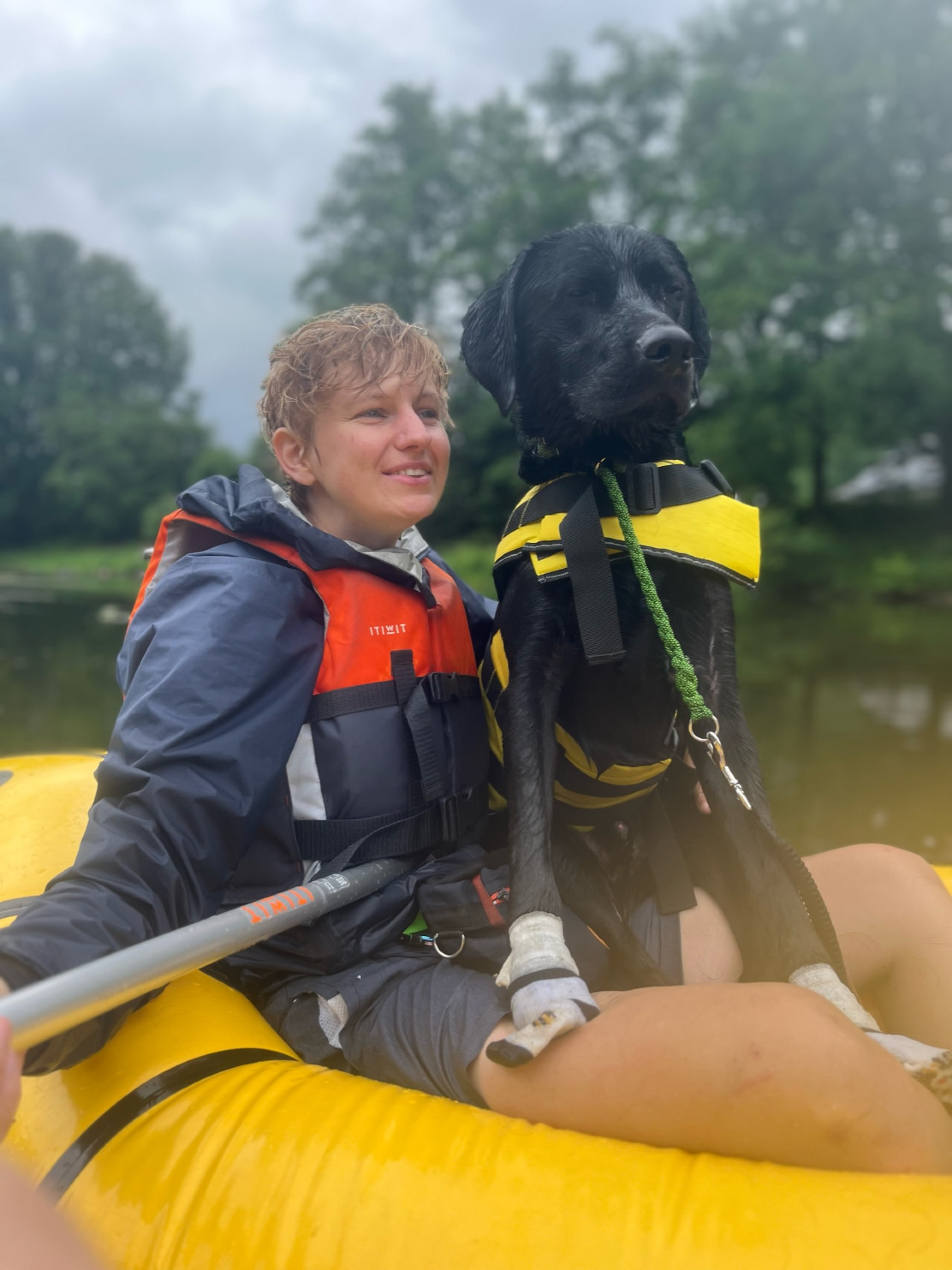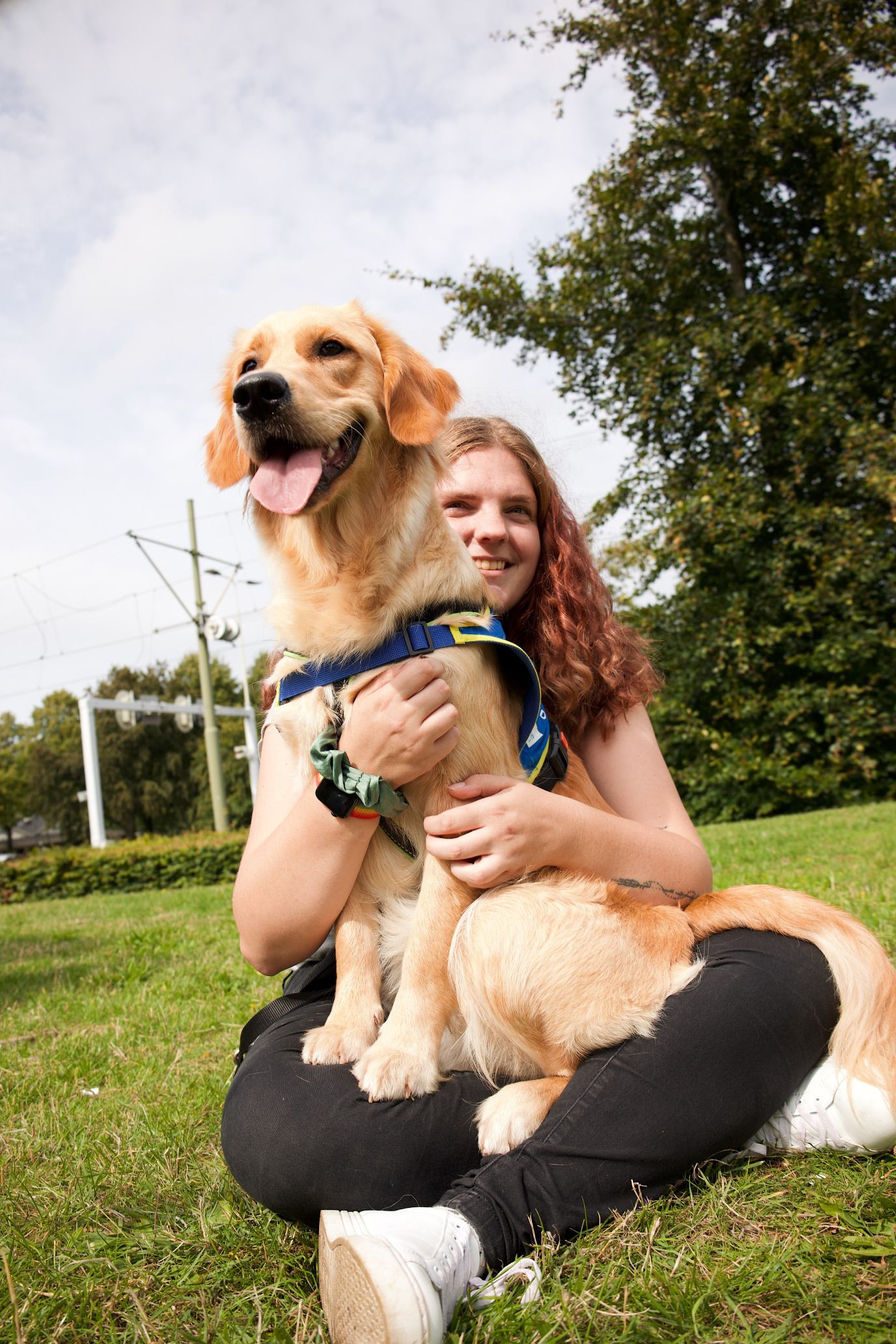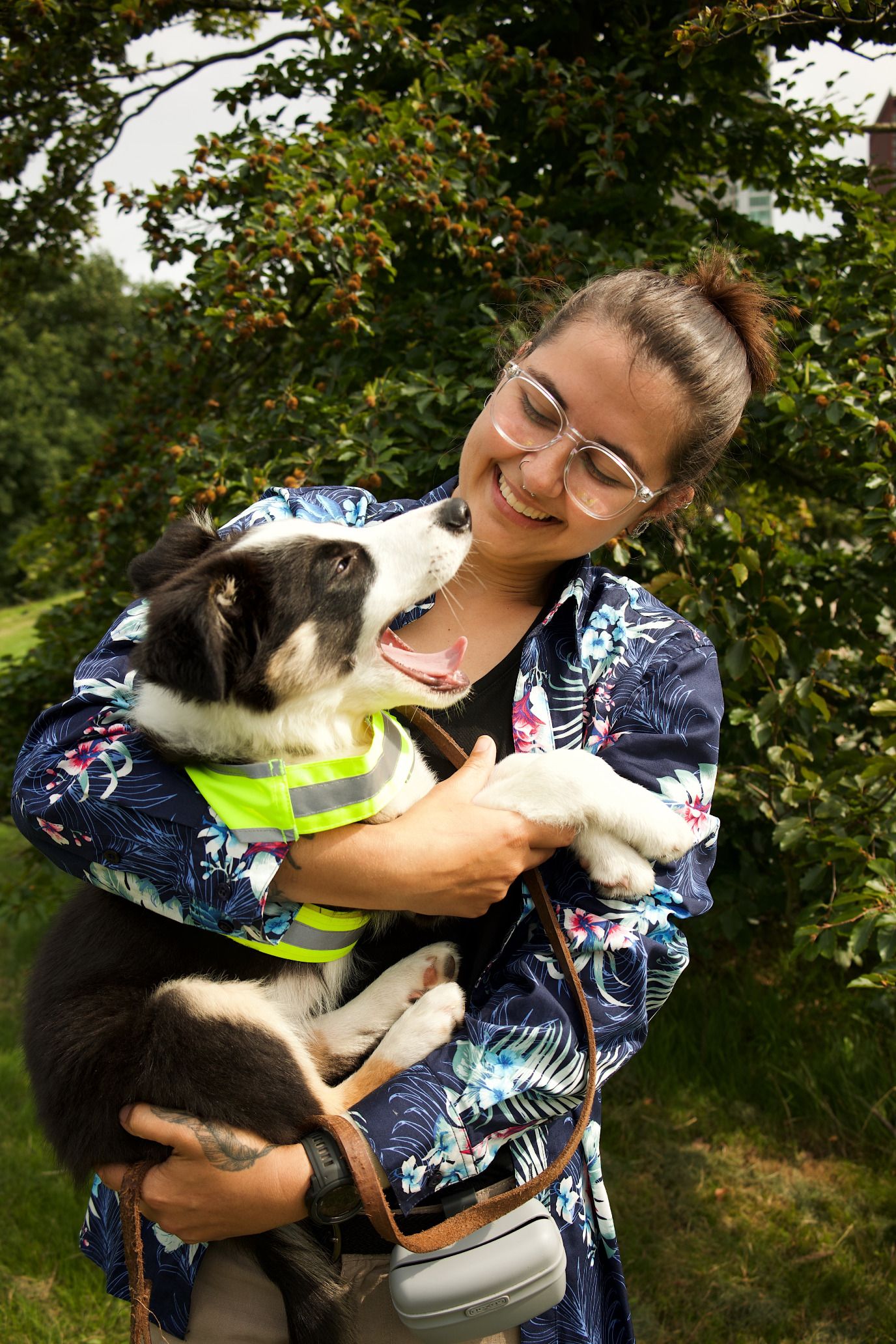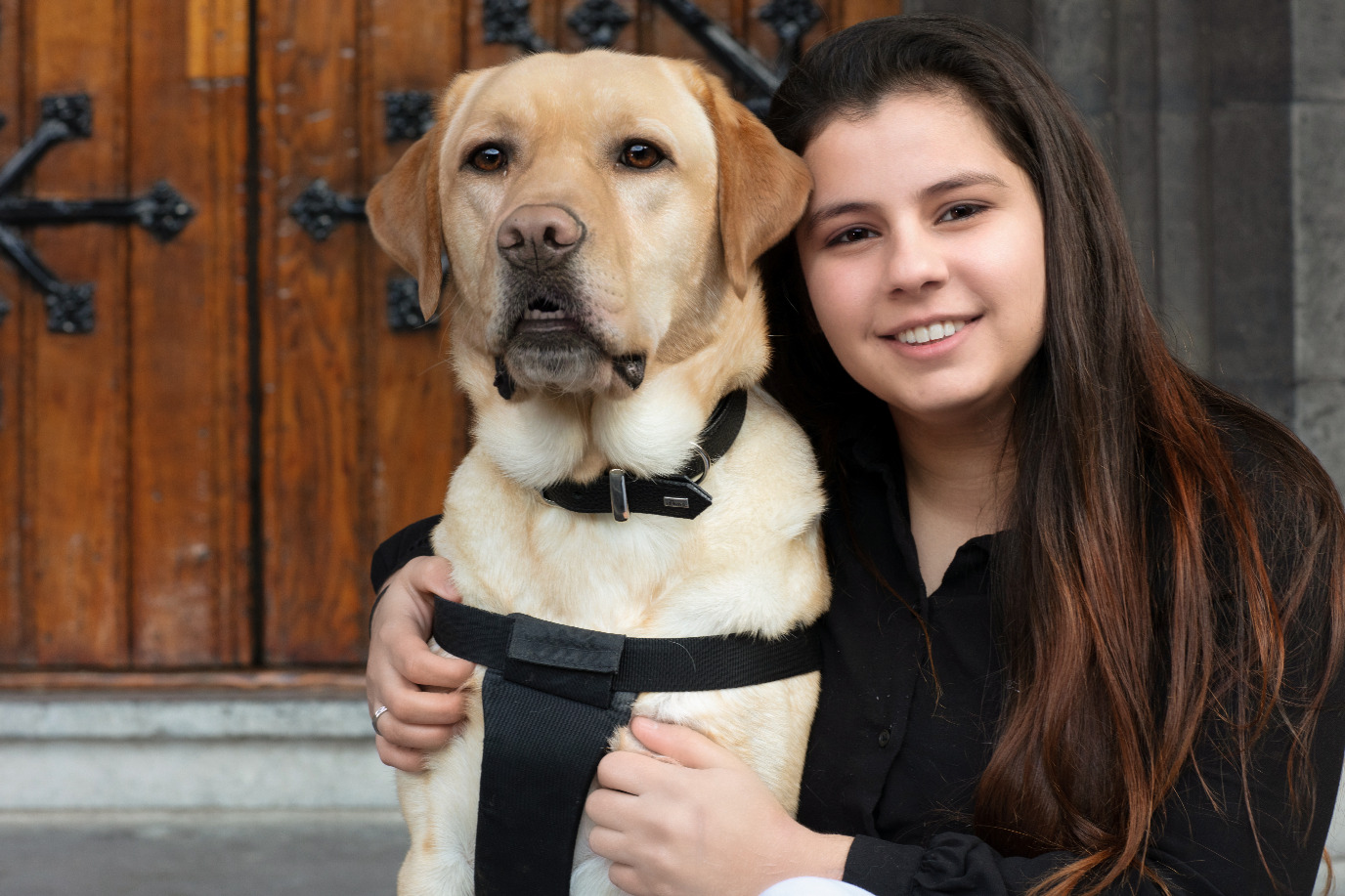Scientists and Youth Collaborate to Improve the Application Process for Psychosocial Service Dogs
Young people facing psychological challenges can greatly benefit from having a service dog. However, the application process for obtaining such a dog is far from simple. A group of young individuals who have experienced this firsthand will be teaming up with researchers Steffie van der Steen and Annemiek Harder in the coming year to investigate how this process can be enhanced.

Since Robin (29) received a service dog in early 2023, their life has significantly improved. "My dog, Doerak, senses when I'm becoming anxious much earlier than I do. He jumps up against me, indicating that I need to take a moment to calm down or find a distraction. Because he does this, the situation doesn't escalate."
Alynda (26) also greatly benefits from her service dog, a golden retriever named Boika. "Boika is still in training, but I already notice how well she understands me. Last Tuesday was tough, and she came to lie beside me, making me feel calmer. She's always with me, accompanying me everywhere, which makes me feel secure. I couldn't imagine being without her anymore."
Arbitrariness
Service dogs can have a positive impact on the lives of individuals with psychological problems. However, due to the intensive training these dogs require, they come at a high cost, often exceeding 25,000 euros. Health insurers only cover this expense for specific conditions. For instance, service dogs are not covered for post-traumatic stress disorder or autism. People affected by these conditions often rely on municipalities who sometimes cover the dogs from the Social Support Act (WMO) budget. Yet, allocations by municipalities seem arbitrary, with clear guidelines lacking.
Lengthy Process
Robin and Alynda experienced this firsthand, describing the entire application procedure as a "drama." Robin stated, "In my case, the application process took over a year and even led to a hearing. Ultimately, I managed to raise part of the funds through crowdfunding, and the municipality found alternative funding for the remaining portion." Alynda's costs were covered by the WMO, but her experience was no less challenging. Like Robin, she engaged a lawyer and spent over a year on the entire process—energy she couldn't really spare.
ZonMW Project
To ensure that others do not have to endure the same arduous journey, Robin and Alynda, along with peers Gunou, Mylèn, Maaike, and Robin, will explore how to improve the application process for obtaining a service dog. They are undertaking this as part of the new ZonMW project 'Research for and by Youth.' This initiative pairs young people and researchers to address mental health issues collaboratively. Robin and Alynda's group was matched with researchers Steffie van der Steen from the University of Groningen and Annemiek Harder from Erasmus University Rotterdam.




Conducting Research Together
The research project will officially commence in September 2023. The young participants will collaborate with Van der Steen and Harder to gather and analyze data. They will conduct literature reviews, surveys, and in-depth interviews with individuals both with and without dogs. They will also engage with municipalities, health insurers, psychologists, and dog trainers. Workshops on scientific research provided by ZonMW will equip the young participants. Alynda remarked, "Steffie and Annemiek know how to do it, of course. We are contributing ideas and providing input. The collaboration feels very equal."


Cross-Pollination
Project leader Steffie van der Steen is enthusiastic about the project. "I find it fascinating how animals can impact people's lives. Psychosocial service dogs get to know you as an individual, with all your qualities and your challenges. They can wake you from a nightmare, for instance. By involving the youth in this research, we bridge the gap between practice and research. This cross-pollination is immensely valuable, and I am thrilled to be part of it."
Future
Both the young participants and the researchers emphasize that the project's goal is not to provide everyone with a service dog. Van der Steen: "Ultimately, we aim to create a decision tree that clarifies for whom a dog is beneficial and for whom it isn't. This way, everyone is treated consistently, regardless of whether they live in Apeldoorn or Rotterdam." Alynda adds, "We hope our research simplifies the procedure. That others won't have to go through the same struggle, and they'll know what to expect sooner."
| Last modified: | 23 August 2023 3.17 p.m. |
More news
-
17 December 2024
Autism in women: masking takes its toll
Women with autism are often diagnosed later than men. Researcher Yvonne Groen developed a screening tool together with her colleagues to simplify the diagnosis.
-
26 November 2024
The fear of eating
Renate Neimeijer conducts research into eating disorders among children and young adults. Her current research focuses on ARFID: avoidant/restrictive food intake disorder.
-
05 November 2024
Do parents have any influence on whether their children wear 'pink' or 'grey' glasses?
How does a positive outlook actually develop? How important is upbringing in this regard? And what kind of role does optimism actually play in the daily lives of parents and children? Charlotte Vrijen is trying to find an answer to these questions....
